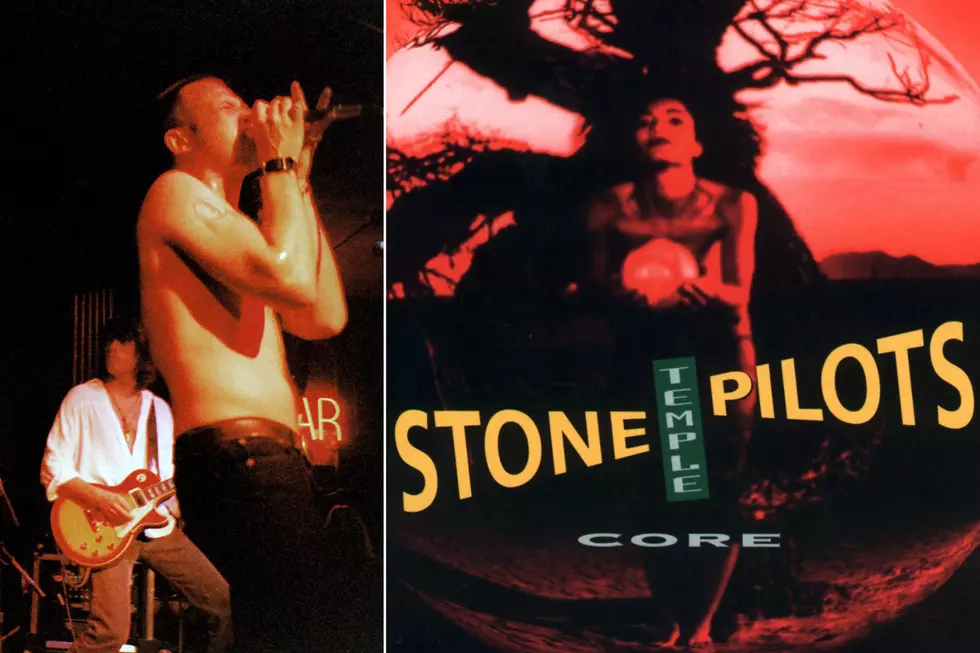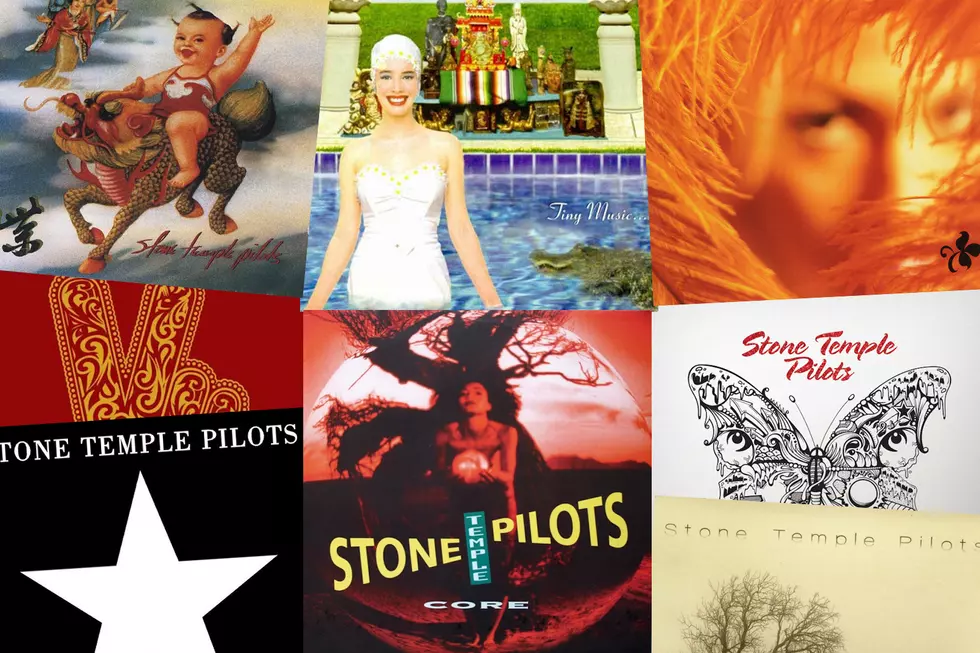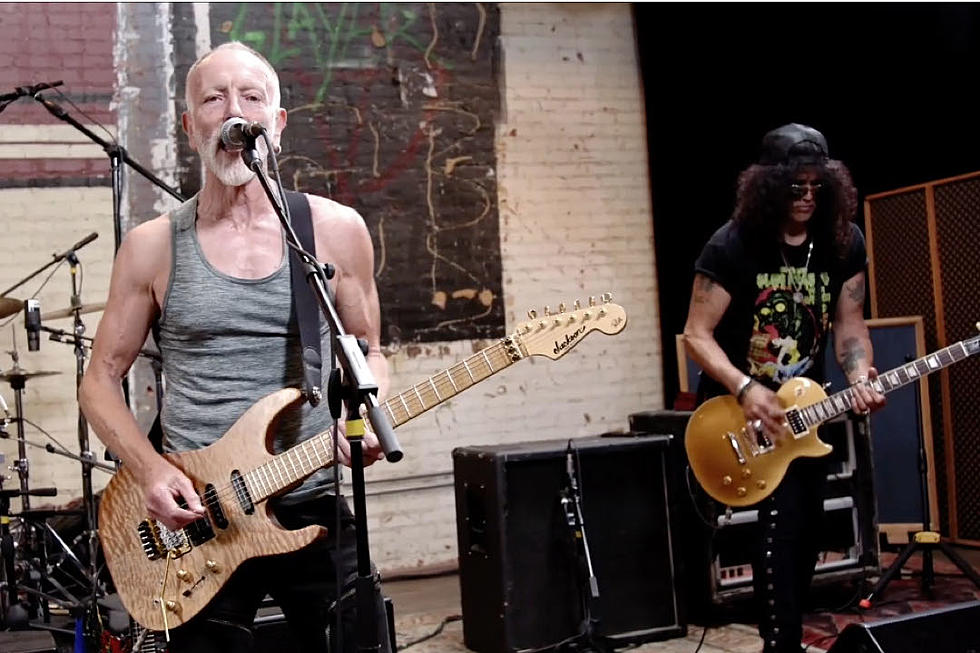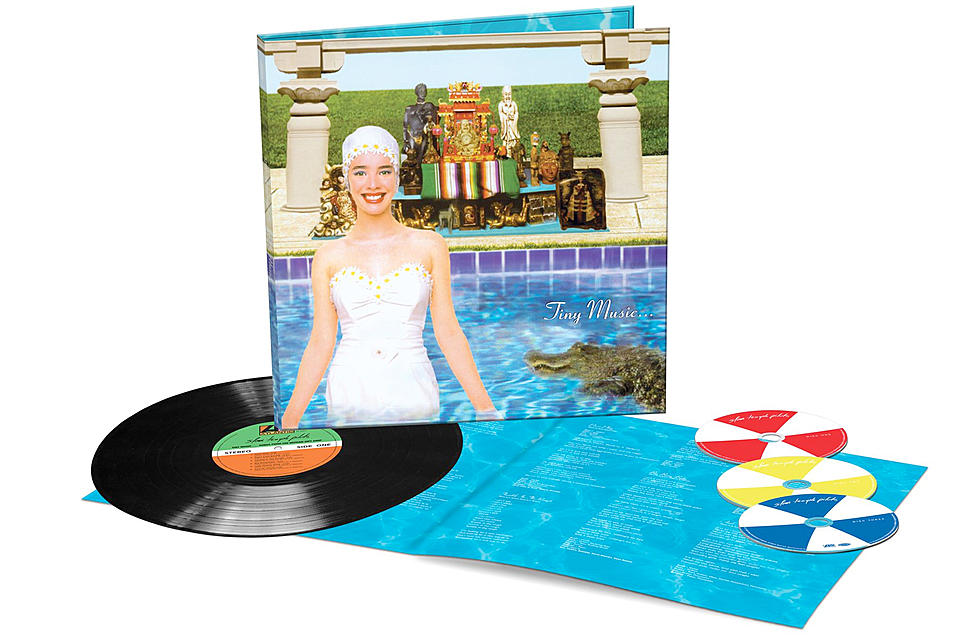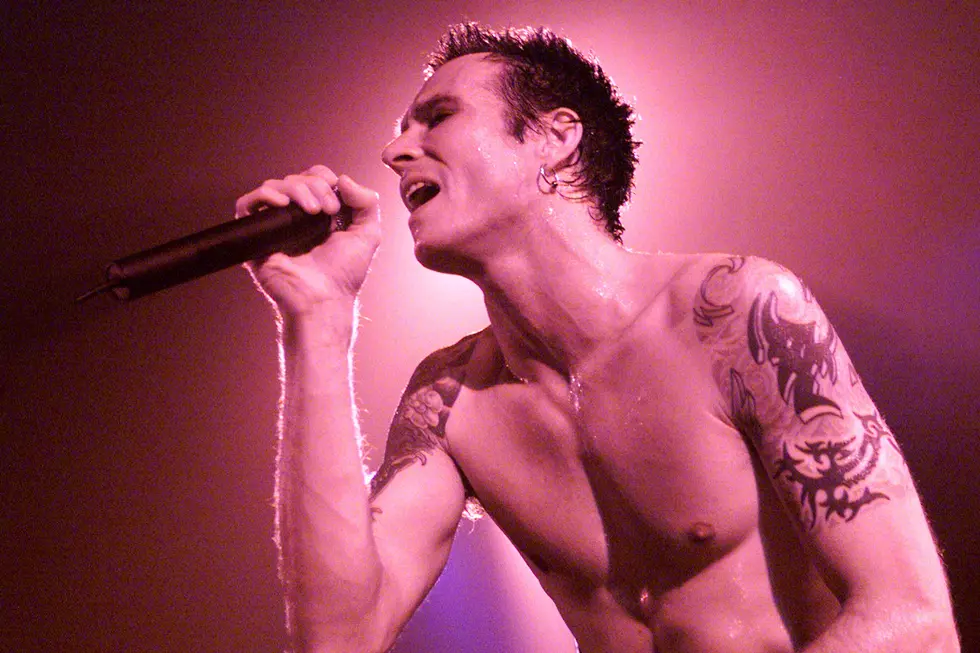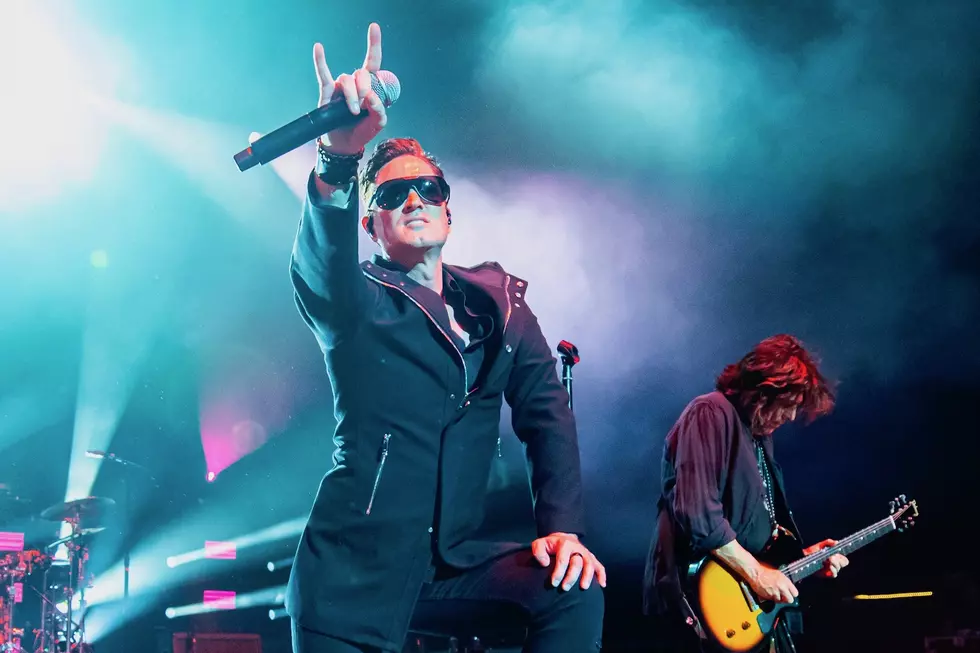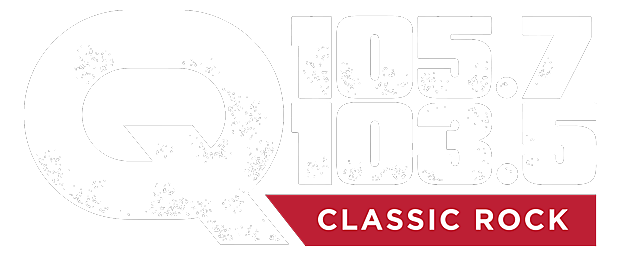
How Stone Temple Pilots Became ’90s Rock Giants
Stone Temple Pilots are now nearly 30 years removed from Core, their 1993 debut, which arrived at the height of grunge. The band has released a healthy stack of albums since then — weathering the loss and eventual death of vocalist Scott Weiland, and eventually regrouping with singer Jeff Gutt, who made his official debut on record with 2018's Stone Temple Pilots.
Guitarist Dean DeLeo recently sat down with UCR to look back at the group's earliest days. He also shared his memories of their third album, Tiny Music...Songs From the Vatican Gift Shop, which turned 25 earlier this summer, and the experience of sharing the stage with Cheap Trick in that era.
Our sister site Loudwire does a thing called "Wikipedia: Fact or Fiction," and Wikipedia says that you and Robert met Scott in 1985 at a Black Flag show. Mighty Joe Young, the initial band you all formed, starts taking shape pretty quickly after that. How accurate is that sequence of events?
I think Robert [DeLeo] might have moved to California from New Jersey in ‘84. I came out a little bit after in ‘85. I think Scott and Robert met first. Scott had a band with some of his longtime friends that he went to school with and stuff. Around ‘87, they were kind of gigging around Los Angeles, wherever they could play, quite honestly. I remember it was a small label. I believe it was called Savage Records. They gave them a demo deal. “Here’s a few thousand bucks, go in and cut a few things, let’s hear what you’ve got.”
That’s when I got the call because the guitar player at the time couldn’t quite lay some solos down. Robert suggested to the guys, “Hey, let’s have my brother come up — I was in San Diego at the time — [and] he’ll play on them.” I think the studio was in Hollywood. I played a couple of solos, and I think it was then and there where Scott really took a look at what he wanted the future to be and what the realm of guitar in what he was doing wanted to be. It wasn’t too long after that they asked me. They said, “Hey, do you want to be in the band?”
I think by 1988 or 1989, I was in the band and we were off and running, gigging anywhere and everywhere we could, between Bakersfield [Calif.] and San Diego. It was those days where we played, and if there was eight people in the place, six of them worked there. [Laughs.] We ended up doing one show in particular at the Shamrock out on Vermont and Western, kind of out in East L.A. It was an interesting club. It was not very deep, but it was very wide. When you’re on the stage, the wall literally felt like it was 30 feet in front of you. The width of the club was huge. We’re playing at this place, and again it was one of those nights where there was no one there.
You know, we didn’t care. We just played like it was going to be our last day alive. We had just been writing a lot of the stuff that actually appears on Core. I remember we were so excited when Robert brought forth the song “Sin” on the first record. We didn’t have any vocals or anything to it yet, but we loved it so much. I remember playing it that night instrumentally. We were just really having a great time, a great night and lo and behold, Tom Carolan from Atlantic Records was there and saw us. That’s how we got signed.
Listen to Stone Temple Pilots' 'Sin'
What year was it that you got signed then?
I’d say ‘89 or ‘90.
There’s a lot of folks that their first memory of STP is that they get the album in ‘93. But you guys were gigging for a long time before that.
Well, I mean, if you want to go back before that, Robert and I were still in New Jersey. We were cutting our teeth on the Jersey Shore and all of those different places to play down there. Robert was 15 or 16 years old, and we were playing all over. Scott and [drummer] Eric [Kretz], with Eric coming down from the Bay Area, I got to see some of the cats that Eric played with, a guy by the name of John Wedemeyer and [someone named] Andy. But Eric was really playing with some extraordinary musicians. Those guys were kids, and they were playing a lot of really heavy fusion stuff. Really great players. So that’s kind of where Eric was coming from at a very young age. Scott, of course, was tinkering around a lot too with different bands and different things down in Southern California. So yeah, we were all kind of playing — although we were a continent apart in one end of the state from one another, we were all kind of doing it.
This is the 25th anniversary of Tiny Music, which was such a groundbreaking album from your band. What are some of your favorite memories of that time period?
Robert was spending a lot of time up in the Santa Barbara, Santa Ynez Valley [Calif.] at the time. He suggested that maybe we go to Santa Ynez and make a record. We had this lovely woman by the name of Bobby. She found us the property [where we made the album], and it was literally this house that enabled all of us to live there. The four band members lived there with a couple of crew members to help out.
We were in this house on 100 acres and just basically lived and wrote and recorded this record in this house. It was very, very communal, which can be really, really cool. It lends itself to what is happening musically. This really communal living and you’re out on this beautiful 100 acres. I think the house truly dictated a lot what the album sounded like. It’s not only just psychologically, but you know, tonally, we utilized the different rooms of the house.
For instance, I know the drums for “Tumble in the Rough” were cut in the cedar closet upstairs. We just had to run lines up the stairs, down the hallway into a cedar closet. We cut the drums for “Big Bang Baby” out on the front lawn. [Laughs.] It was just fun.
The guitars, that beautiful reverb that you hear on “And So I Know,” that was the natural reverb from the foyer of the house. So we utilized the sound of the rooms.
What are your memories of recording “Lady Picture Show?”
I remember Robert showing that to us. That’s another one that Robert and Scott wrote. We were kind of sitting around, and Robert pulled that one out. I remember seeing Scott light up, like, “Oh yeah. That’s good, man!” That was always the greatest gift anyone could give one another, when you’re sitting there presenting a song and you see someone really, really smitten by it and really wanted to be a part of it. That’s a great thing. It sure as heck is a lot better than, “I don’t know if I’m feeling that.” [Laughs.] Which happens from time to time. But I do remember particularly with that track, Robert playing that on an acoustic guitar, and I was thrilled about it, and so was Eric. I just remember seeing Scott’s eyes light up, like, "Yeah, that’s really good, man."
Is that a difficult song to perform for any reason? Because it doesn’t seem like you guys play that one often. Not necessarily emotionally, but technically, is it a hard song to play?
We were just talking yesterday, why didn’t we write more songs in the vein of AC/DC where I can just play all in first position, a D, G, E and a C or whatever! [Laughs.] But you know, the STP songs are challenging. They are hard to play. They’re hard to play, and there are a lot of very different fingerings chordally speaking. When you’re up there and you’re entertaining and performing, yes, it’s not as easy as just plunking out chords in the first position. The chords for “Lady Picture Show” are on the tougher side of chordings. Because those chords are all about letting the bottom E and the B really ring out. So you’ve got to really get your hand on the neck just right.
Watch Stone Temple Pilots' 'Lady Picture Show' Video
I was watching a live performance from 2019, and Jeff really brings an incredible energy to this band. He delivers a performance that honors the essence of what you all created with Scott, yet he has his own thing.
Well, especially over the racket we’re making. It really knocks me back. I mean, I don’t know how singers do it, man. It’s something very hard to step up to a microphone and make it happen. Those are the cats that are really, really working up there. You heard me just talking about how some chords are harder than others. But singers are really physically delivering something. There’s a whole physical push behind that performance. It’s really incredible to witness a great singer that can sing over a band making a bunch of noise, especially.
The band has made some great new music with Jeff, two albums to be exact. Have you started working on another record yet?
We have not. But there’s always a ton of material sitting around. I think we may do something in early 2022. We’ll see what happens.
Perdida was great. Acoustic albums are not easy to do, but it seems like that had to feel pretty good for you guys with that record.
That one was pretty cathartic. It was definitely a snapshot in time for sure. It did feel good to get that out of your bones.
STP took Cheap Trick out as an opener on the Tiny Music tour. Do you have a good story from that period and being around those guys?
Coming up, I saw those guys a few times. I was at a guitar show [and] saw a poster of the show that I saw in 1976 at The Capitol Theatre in Passaic, N.J. The opener was UFO. So I bought the poster, of course, and had it framed.
My son has it now. He’s 18 and has the poster framed up. Before I left for the tour, I took a photo of it and, of course, we all got pretty close on that tour. That’s one of the things about being on the road. You hear some stories of bands clashing, but I’ve never experienced that. We always start a tour with somebody, and you wind up leaving and everybody becomes very close and everybody stays in touch. I spoke to Rick [Nielsen] last week. So yeah, I showed those guys the poster. I was like, “I was at this show.” I was 15 or 16 years old.
Oh wow. UFO and Cheap Trick at that age. That’s so awesome.
Yeah, it was [also] the first place I saw a concert. My first concert was there seeing Uriah Heep.
Oh nice! That would have been prime time for Uriah Heep too!
Oh, prime time, man! Ken Hensley, Mick Box. It was the original lineup. But you know, getting to know those cats on a personal level and spend time with them and watch them play, just being such huge fans and growing up with those records, it was just amazing. Once again, I’m going to go back to the singer. You know, you really get to witness a great singer and man, Robin Zander? He’s up there.
Top 30 Grunge Albums
More From Q 105.7

